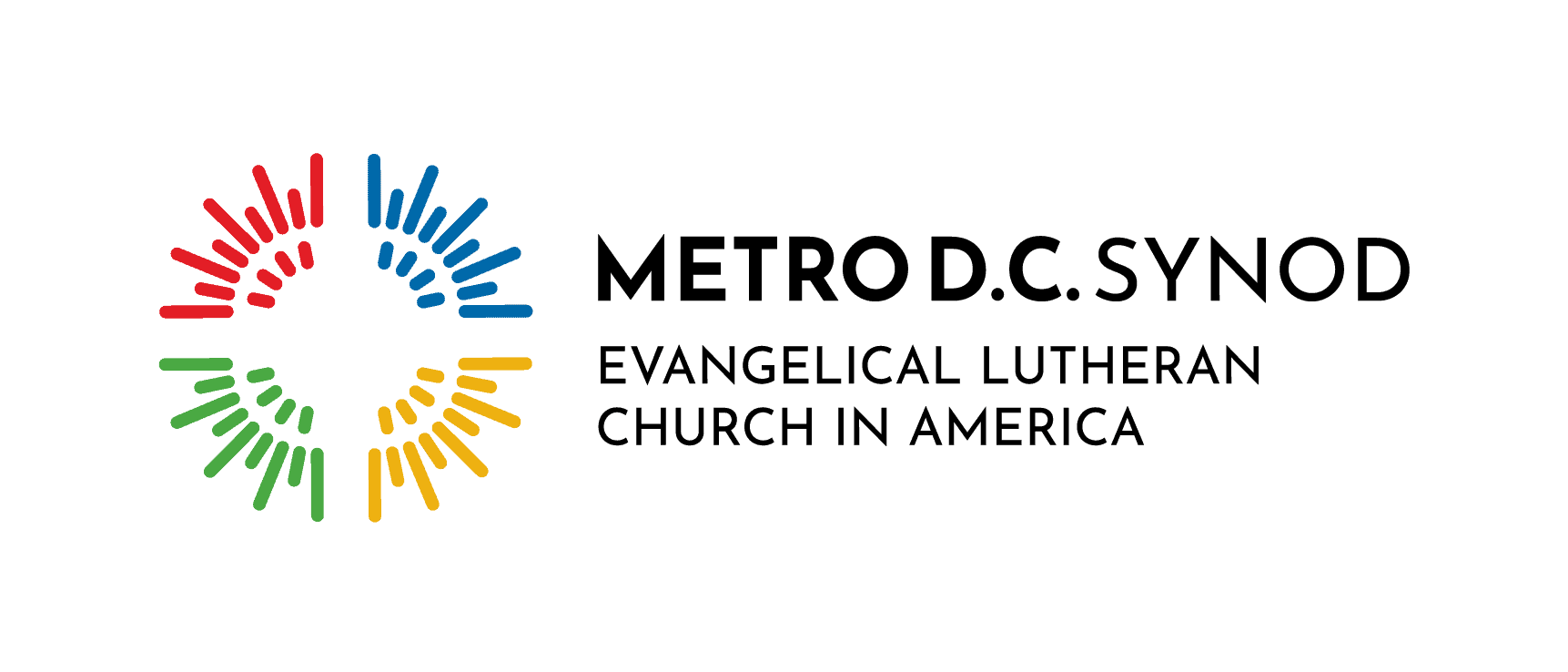A Plan for Racial Justice in the Metro D.C. Synod of the ELCA

Preamble
The Metro DC Synod Council issued a letter on October 7, 2020, that called on the synod and its congregations to dismantle white supremacy within the church and society-at-large. Moreover, the letter called on the synod to more fully support and embody anti-racism towards Black, Indigenous, and People of Color as a prophetic and central value in its witness of the Gospel. The letter committed the synod council to propose a plan in conjunction with the letter by April 1, 2021.
After the letter was issued, Bishop Leila Ortiz, Director for Evangelical Mission, the Rev. Lamar Bailey, and Vice President Jackson Droney discussed forming a team to propose a plan to the synod council to live into the commitments of the letter. A Racial Justice Planning Team was formed and held its first meeting on February 23, 2021. The team included Bishop Ortiz, Vice President Droney, Sheena Foster, Jennifer Slagle Peck, the Rev. Ben Hogue, the Rev. David Trott, and Aaron Zeiler. This team includes members of the synod council and other synod teams, committees, and tables. The team also consulted with the Rev. Carmelo Santos from the churchwide organization. The team met on March 8, April 6, and May 3, 2021, and offered the proposal below to the synod council. The synod council unanimously affirmed this plan at its meeting on May 15, 2021, and the synod is moving forward with implementation.
Proposal
After reviewing the affirmations and commitments contained in the letter, the team proposes to divide its plan into the following three parts:
- Learning Spaces. The synod shall provide regular opportunities for rostered ministers and laypeople to learn about racial justice and equity, particularly the ways implicit bias and racism taint systems and structures and the theological basis for seeking racial justice and equity. These spaces will aim to increase shared language and understanding of structural racism across the synod. There will be brave spaces for questions, storytelling, deep listening, and challenging conversations. Moreover, these spaces will aim to promote communal discernment and offer worship resources. There will also be differentiated spaces to allow people of particular identities to relate and grow together. The synod will develop an annual rhythm of offerings, including but not limited to curricula from our ecumenical partners, resources from other synods and the churchwide organization, and events/gatherings specific to our context.
The Bishop and synod staff shall organize these offerings. Additionally, the Racial Equity Team shall convene multiple cohorts to engage the curriculum “Sacred Ground,” a dialog series on race and faith, and develop relevant worship opportunities and resources. The Bishop’s leadership academy series will emphasize anti-racism. Conference meetings within the synod shall maintain a racial justice agenda item for colleagues to review their anti-racist efforts and support and learn from each other. Rostered Ministers are invited to have accountability partners within their conference to further their anti-racist development. The ongoing series of offerings will evolve as the synod’s work with a contractor to review synod systems takes shape (see below). Beginning July 2021, the Bishop and the Racial Equity Team shall report to the synod council at each of its meetings on the status of these offerings. - Engage a Contractor to Review Systems. The synod shall issue a Request for Proposal (RFP) to engage a contractor to review the following systems of the synod: candidacy, mobility, personnel guidelines, compensation guidelines, discipline, and appeals. The contractor will help synod leaders review these systems for bias, propose changes that are more likely to yield equitable outcomes, and identify instances in which our polity makes change more difficult. The Bishop and synod office shall issue this RFP by June 15, 2021, to secure a contractor by Nov. 1, 2021. The contractor shall be engaged on a part-time basis and make recommendations based on an assessment of synod systems and learning spaces. A committee of synod leaders representing the various systems named in the RFP shall form to support the contractor in their work. The Bishop shall provide updates to the synod council at each of its meetings until a contractor is selected. After a contract has been engaged, the contractor shall regularly report to the synod council.
- Reparations for Healing and Reconciliation. A panel of approximately six laypeople and rostered ministers of the synod shall be formed. The panel will consider how the synod as an entity, and its congregations, may issue reparations to people of color and work toward meaningful reconciliation. The panel will have six months from its inception to study proposals for reparations issued by academics, ecumenical partners, and other thought leaders, engage in dialog within the synod, and present recommendations to the synod council. The panel will describe the theological underpinning of reparations. The panel will provide opportunities for individuals and congregations to ask questions and provide feedback on possible methods of reparations. The panel will present options for congregations to consider when choosing how to engage in making reparations. The panel will take an expansive view of reparations, meaning that reparations may not be limited to cash payments. When forming the panel, the synod will be guided by the churchwide organization’s nominations process for task forces working on social statements.


